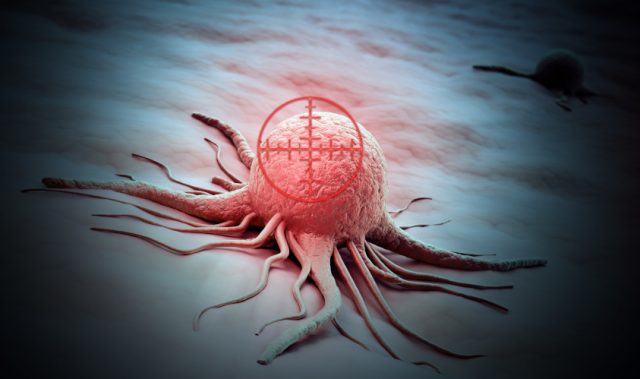
AsianScientist (Feb. 19, 2015) – Researchers have developed a new approach to cancer treatment: targeting the specific pathological function of the ‘culprit’ molecule rather than inhibiting its gene expression. Their results have been published in the Proceedings of the National Academy of Sciences.
A team of researchers led by Associate Professor Caroline Lee from the Yong Loo Lin School of Medicine at the National University of Singapore (NUS), in collaboration with Associate Professor Song Jianxing of the Department of Biological Sciences at the NUS Faculty of Science, has discovered that the interaction between two proteins, namely FAT10 and MAD2, leads to inflammation-associated cancers, such as liver (hepatocellular carcinoma) and colorectal cancers. A disruption of this unique interaction can prevent cancer.
FAT10 is a protein that is expressed mainly in tissues of the immune system, including the spleen and thymus. In their previous studies, Lee and her team had found that overexpression of FAT10 promotes tumor formation, growth and progression. However, the mechanism underlying FAT10’s cancerous characteristics remained unclear.
In this latest study, the NUS research team discovered that FAT10 interacts with a protein called MAD2, which serves as a gatekeeper of cell-division to ensure that each cell receives the same number of chromosomes. When FAT10 interacts with MAD2, it pulls MAD2 away from its gate-keeping function, causing many cells to carry abnormal number of chromosomes, which leads to cancer.
They found that when the interaction between FAT10 and MAD2 is disrupted, the number of chromosomes in the affected cells is restored and tumor progression is curtailed, without affecting FAT10’s interaction with its other known key interaction partners.
The results present a new paradigm for drug targeting and pave the way for the development of a novel small-molecule anti-cancer inhibitor targeting the specific interaction between FAT10 and MAD2.
Explaining the significance of the team’s work, Lee said, “Many current strategies target over-expressed genes to inhibit their expression. As these cellular genes perform other functions besides causing cancer, inhibiting their expression in a blanket fashion may result in undesirable side effects as the physiological function of these genes may be affected as well.”
“Our strategy works differently as it targets a specific pathological function of the ‘culprit’ molecule without affecting its other physiological functions. This is especially important for a molecule like FAT10 which is not only over-expressed during cancer formation but is also over-expressed during immune response.”
The researchers will further explore the relationship between FAT10 and MAD2. They aim to identify and design drugs that can specifically disrupt their interaction to prevent formation of inflammation-associated cancer.
The article can be found at: Theng et al. (2014) Disruption of FAT10–MAD2 Binding Inhibits Tumor Progression.
—–
Source: National University of Singapore.
Disclaimer: This article does not necessarily reflect the views of AsianScientist or its staff.












